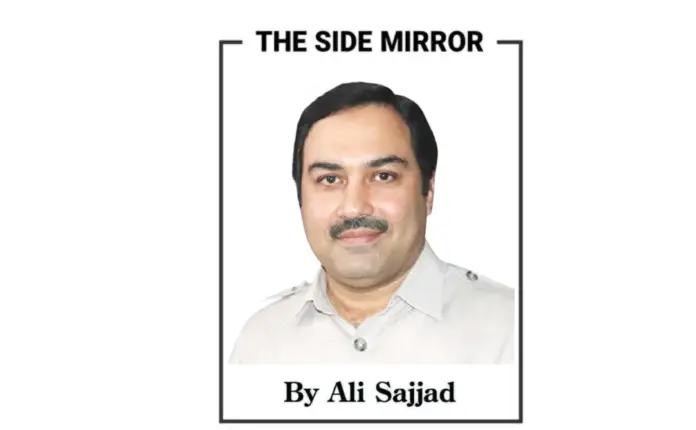The easiest option for a media house is to be impartial. But the problem is that the people never believe in it. Also, there is a heavy price that one has to pay for being impartial.
The other reality is that often people tell me that media houses, especially TV channels, in Pakistan are known to be partial towards the government or the opposition depending on the parties that are on either side.
No doubt, impressions work and it is difficult to shed the image of being a partisan.
However, media owners have a responsibility to be impartial and unbiased so that they can report the true picture of what is happening in the country, without getting into controversial matters.
Recently, Aleem Khan stepped down from his position as Punjab minister for food after becoming the major shareholder of Samaa TV. This move has set a good record, which suggests that a media owner should be impartial and also that someone who serves the people as a minister, should not be involved in the media in a way in which they can influence the narrative being produced. Being a minister as well as the TV channel owner, would have impacted both the ministry and the media channel.
Aleem Khan’s move will benefit his channel’s credibility. And Aleem Khan himself will emerge as a man of ethics.
Recently, an audio clip was leaked in which Maryam Nawaz is heard talking about the ad allocations for certain TV channels. It clearly suggests how the people in power control the narrative by denying news channels ads, so that they are not able to earn through the methods. This way they can succumb to the pressure and air content, which these people want them to air. It is said that buying and selling of media houses is an activity enjoyed by the parties of both ruling and opposition sides, and sadly, it restricts the flow of true and honest journalistic content.
Pakistan Electronic Media Regulatory Authority (PEMRA), being the watchdog of the electronic media, has the responsibility to regulate policies. But it often comes under fire for banning multiple channels and programmes on the pretext that they air anti-government content. In a democratic country, such discourse should be encouraged and not be banned by government agencies. By placing bans, the government is only making its position weak in the eyes of the general public.
Although controlling the media is not restricted to Pakistan, the issue is more prevalent here.
With the tug of war between parties, a lot of money is poured into such activities. However, it is crucial for media house owners to be absolutely impartial so that the true picture is provided to the general public. On the other hand, propaganda through the media is a very important tool of politics and this is how it works around the world. A problem exists where a ban culture is introduced and the media is not free to show what they please.
As problems exist, the solution lies in being impartial. Though that comes at a price, but at the end of the day, the reward is hefty.






